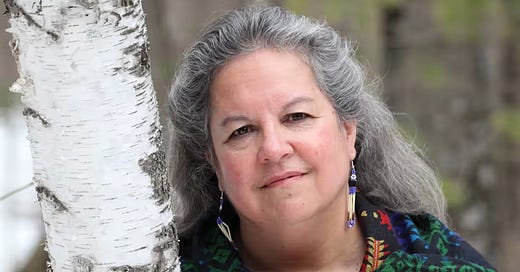Raise a Garden. Raise Good Kids. Raise a Ruckus
Three lessons from a weekend with "Braiding Sweetgrass" author, Robin Wall Kimmerer
Matriarchy Report is a reader-supported publication. To support independent feminist journalism, become a paid subscriber, starting at $5 a month, using the link below.
If this essay is useful to you, your help (likes, comments, shares, subscriptions) make a big difference in making this newsletter sustainable.
Keep reading with a 7-day free trial
Subscribe to Matriarchy Report to keep reading this post and get 7 days of free access to the full post archives.




